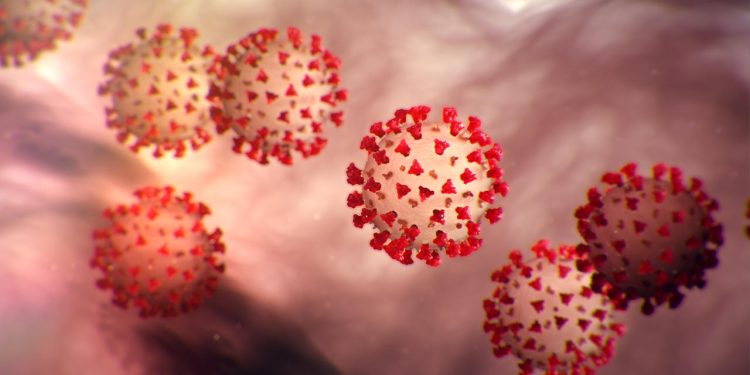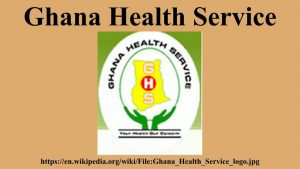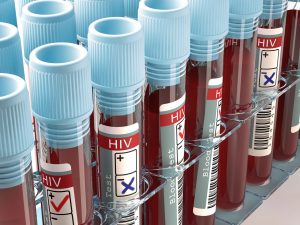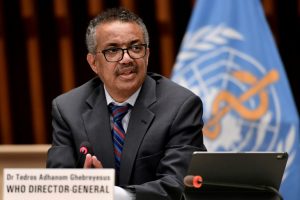Some 5,397 active COVID-19 cases are currently being battled by Ghana’s authorities.
The death toll has also shot up to 831.
Also, 394 fresh cases have been confirmed.
Since mid-March 2020, a total of 103,789 people have had the virus in Ghana.
Out of that number, 97,561 have recovered.
President Nana Akufo-Addo recently said the upsurge in COVID-19 cases clearly shows that Ghana is experiencing a third wave, which he put down to the relaxing of adherence to the safety protocols.
“As per data available from the Ghana Health Service, it appears that, unfortunately, our nation is experiencing a third wave of COVID-19 infections”, the president said in his 26th national address on COVID-19 on Sunday, 25 July 2021.
“These increased infections have largely been driven by the Delta Variant of the virus, which, according to the World Health Organisation, has increased transmissibility rates, and, in our case in Ghana, has led, in recent weeks, to a rise in hospitalization and ICU bed uptakes, and, tragically, deaths”, he noted.
Indeed, he said, in Update No.25, “the last update I rendered, our total active case count stood at one thousand, three hundred and fourteen (1,314), with our daily infection rate standing at one hundred (100). One million, one hundred and twenty-one thousand, one hundred and sixty-eight (1,121,168) COVID tests had been conducted, out of which ninety-two thousand, four hundred and sixty (92,460) persons had been infected, ninety-one thousand, one hundred and forty-six (91,146) persons had recovered, with a total of seven hundred and eighty-three (783) deaths”.
As of Wednesday, 21st July 2021, however, “ten (10) weeks later, the Ghana Health Services is now reporting that our total number of active cases stands at four thousand and ninety-four (4,094). A total of one million, three hundred and ninety-four thousand, five hundred and forty (1,394,540) tests have been conducted, out of which one hundred and one thousand, one hundred and seventy (101,170) persons have been infected with the virus, and ninety-six thousand, two hundred and fifty-five (96,255) persons have recovered”.
“Sadly”, he bemoaned, close to 40 more people have died from COVID over the last 10 weeks, with Greater Accra and Greater Kumasi Metropolitan areas remaining the hotspots of infections. “This entire development is very alarming, especially as we are being told by officials of the Ghana Health Service, that the recovery rate is on the decline”.
“Fellow Ghanaians, it is obvious from the data that we have let our guard down, with many going about their daily duties in clear breach and disregard for the protocols”.
“At a time when the economy is on the rebound, and business activities picking up, we must do everything possible to contain this outbreak”, he urged, adding: “We cannot afford to return to the days of partial lockdowns, which brought considerable hardships and difficulties for all of us”.
The president announced a ban on all post-funeral receptions and said one-week funeral anniversaries should be “restricted solely to family members, and should not exceed a duration of two hours”.
He also directed that all funerals should not go beyond two hours.
The 26th COVID-19 address came 24 hours after the Noguchi Memorial Institute for Medical Research (NMIMR) warned that fully-vaccinated persons are testing positive for the fast-spreading Delta variant with very high viral loads.
NMIMR observed, “with concern”, some characteristics of the new Delta variant of SARS-Cov-2 detected at the institute’s testing centre since April 2021.
In a statement issued on Saturday, 24 July 2021, the Institute said the “positive cases have very high viral loads indicated by low cut-off thresholds (CT values) obtained in the real-time RT-PCR assay”.
The CT values for the majority are between 15 and 20 compared to higher values above 30, seen previously, NMIMR noted.
The Institute also said it has observed that “the positive individuals are taking longer to clear the virus”, explaining: “This is evident in the number of retests that still test positive”.
NMIMR also revealed that its recent sequencing of SARS-Cov-2 has revealed an “increased circulation of the Delta variant in Ghanaian communities compared to the earlier Alpha variants”.
“The higher viral loads observed in recent cases are attributable to the Delta variant”, the statement said.
Transmission of SARS-Cov-2 is directly linked to how much virus is shed in droplets during sneezing and coughing, which also determines the spread through talking, singing and other related activities.
The Delta variant has been reported to spread faster than the other variants and our testing observations confirm that.
The statement said some clinical specimen submitted to the Institute have tested positive with high viral loads.
“Also, 7.34 per cent (840/6,538) of the positive cases recorded from asymptomatic persons who visit the walk-in centre to test for travel, work- or school-related purposes from 1 June to 22 July 2021, have equally high viral load”, NMIMR noted.
Noguchi warned: “With a population of more than 80 per cent unvaccinated, the country must be concerned that if these, apparently healthy carriers, transmit the virus to the unvaccinated, we may have a more serious outbreak to deal with as a nation”.
Some of these positive cases, it noted, “have taken the full dose of COVID-19 vaccines”.
“It is, therefore, recommended that the government take a second look at the state of adherence to COVID-19 preventive protocols and appropriate restrictions”.
A few days ago, President Nana Akufo-Addo said the rising number of active COVID-19 cases shows that “we’ve let our guard down”.
Addressing Muslims at the Eid-ul-Adha celebration at the National Central Mosque at Kanda, Accra, President Akufo-Addo said: “The COVID-19 pandemic is still with us – unfortunately”.
“This means that for the second year running, we are having to hold a subdued Eid celebration”, he observed.
“As we continue to count on the grace of God to protect our country from the ravages of the pandemic like he has since its outbreak, we can only minimize its health effects and avoid a full-blown third wave if we continue to be responsible and observe the safety and hygiene protocols.”
He noted: “The recent increase in the number of infections is a source of worry for me and, indeed, for all Ghanaians”.
“From the rising numbers, it is safe to conclude that we have let our guard down and are beginning to live our lives and conduct our businesses as though we are in normal times”.
“It is important to repeat that the virus is still with us and until each one of us receives a dose of the vaccine, the protocols must continue to be a part and parcel of our daily activities,” he added.






